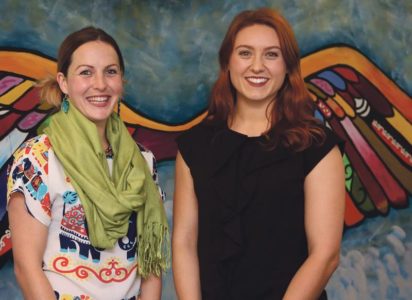
Angry, shocked, scared, emotionally disturbed and bewildered.
These are just some of the emotions children experience as they watch a parent being arrested. Being witness to a parent being handcuffed is traumatic.
The effect of imprisonment can be a long-lasting one, leaving children of prisoners alienated and stigmatised.
They are the forgotten people, the invisible victims of crime.
Research shows that children of prisoners are about nine times more likely than other children to be imprisoned later in life as they find themselves in a situation they didn’t choose – and yet have to face a life sentence of social deprivation.
Helping to bring stability into the lives of some of the most vulnerable children from five-to-17 years of age through a one-on-one mentoring programme is Pillars – a non-government, national organisation that provides specialised support for children and families of prisoners.
Recently recruited for voluntary mentorship, Whitford resident Rachel Peeters says that while the screening process to match her with a child took almost a year, the philosophy of helping appealed to her.
“We are not social workers to fix things but are there to offer friendship,” she says.
“Looking at the broader picture that targets at-risk children whose parents are in prison, gave me an opportunity to do something I am genuinely interested in.”
The young family lawyer, also a former promoter of World Vision, says she has always been drawn towards reaching out and has done her bit of mentoring at the church and with another organisation in South Auckland.
The 25-year-old first heard about the charity in law school when one of her friends was doing a research paper on Pillars. Rachel felt her calling when she later saw it on her Facebook feed.
The idea of being a positive role model and changing the narrative of a child’s story is something Rachel feels passionately about.
“I have been matched with a 12-year-old girl. The first time we met, I took her to the zoo since she loves animals,” she says.
“She wants to open an animal shelter when she grows up.
“The second time we went tenpin bowling. She was good at it and won a soft toy.
“I want her to have a sense of self efficacy and gradually develop an attitude of `I can back myself’.”
Corrina Dixon, mentoring coordinator of Pillars, says that the family’s response to Rachel has been very encouraging.
“They said that things changed the day the 12-year-old met her mentor. Rachel is very special,” she says as she gives examples of other successful stories.
“At any given time, there are around 20,000 Kiwi at-risk kids that have their parents in prison; out of which 5000 are in South Auckland alone.”
Mentors bring more goodness, fairness and stability into families, says the 30-year-old who believes that it requires a lot of courage and commitment for everyone to come to the table.
“It is very brave for both the mentors and the families of offenders to come forward. I see our children as children of promise,” she says.
Mentors need to commit for at least a year with fortnightly meetings.
“They should be fun loving, flexible, have a driver’s licence and create an engaging space for the child they are mentoring.
“Anyone considering getting involved in changing lives can get in touch with us.
“Like they say, it takes a village to raise a child. ”
Pillars: Level 1, 6A Jack Conway Av, Manukau.










